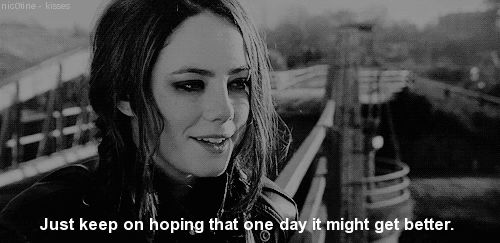The 10 REAL Reasons Depression Worsens During The Holidays
Depression is not something to discount during the holidays.
 Maridav/Shutter Stock
Maridav/Shutter Stock Ever wonder why depression seems so much worse during the holiday season? Some of the reasons may be a surprise, while others seem very obvious. Here are 10 reasons people suffer from depression during the holidays, and each one is based on real personal struggles.
1. Humbuggery
This word is made famous in Charles Dickens' story, A Christmas Carol, where Scrooge frequently says, “Bah-Humbug.” The pure meaning of the word is a pretense or deception. During this time of year, the gap between the happy (whether faked or real) and the sad seems to be amplified. This trickery gives the illusion that depression is worse because of the comparison to the cheerful.
2. Superficiality
Just one short month ago, a rare election upset created a divisive nation elevating levels of anxiety and doom. These feelings have not had a chance to reset and already there is an expectation of celebrating the holidays joyously. This fast shift creates an artificial and shallow façade which most depressed people are unable to accommodate.
3. Disconnection
Some people have party invitations to spare while others don’t receive even one. The lack of engagements highlights feelings of loneliness and isolation at a time when the exact opposite should be true.
4. Disharmony
There is nothing quite like the holiday season to force a reunion of dysfunctional family members into one environment. The old saying “One rotten apple spoils the whole barrel” is a perfect explanation as to how one dysfunctional person can disrupt an otherwise wonderful gathering. Their presence alone can cast gloominess on everyone around.
5. Fabrication
In an effort to minimize past trauma, many rewrite the ghosts of Christmas past into a more angelic version. This self-protecting mechanism can be useful as long as no one counteracts with the truth. But when that occurs, feelings of hopelessness rapidly replace the denial of reality.
6. Scantiness
Not everyone is fortunate enough to have the financial resources for gift-giving. Those unable to give at the level they desire frequently have feelings of despair. There is a whole different reality between those able to spend money and those unable. This is highlighted and reinforced by the media, ads, and displays.
7. Heartache

LiveJournal
Holiday traditions which unite family and friends simultaneously reveal those no longer part of the gang. Whether the reason is by death, divorce, missing, deployment, or intentional isolation, the pain in the heart is there.
Depending on the nature of the departure, this ache can last for many years and in some cases a lifetime. The process of grieving is unique to each person and circumstance, but the holidays exaggerate the sadness.
8. Trepidation
The discussion of New Year’s resolutions permeates news stories as the end of the year draws to a close. Having to confront past failed attempts at pledges to do life differently, piles on the discouragement. This dreaded confrontation feels more like a doomsday rather than a celebration.
9. Weariness

Tumblr
The holidays are filled with additional activities and obligations which are not apparent the rest of the year. However, there is no increase in the number of hours available to accommodate the events. The result is many healthy activities are sacrificed for an exhausting and hurried schedule. The lack of good self-care and balance can strengthen depression.
10. Clangor
The noise volume is turned up several notches with jingling bells, honking horns, festive music, and excited children. At first, it can provocatively draw a person into the spirit of the season. But the absence of silence takes a toll because there is no rest for the senses. Calmness can reduce melancholy feelings, while chaos can magnify it.
Depression is not something to discount during the holidays. Each person should be taken seriously and properly evaluated for any suicidality.
Everyone who considers or talks about suicide needs to get some help from a professional. If you or someone you know is struggling, please reach out for assistance. The national suicide prevention lifeline is 800-273-8255 or www.suicidepreventionlifeline.org.
.......
Christine Hammond is a Licensed Mental Health Counselor and a National Certified Couselor who lives in Orlando and is the award-winning author of The Exhausted Woman’s Handbook.



